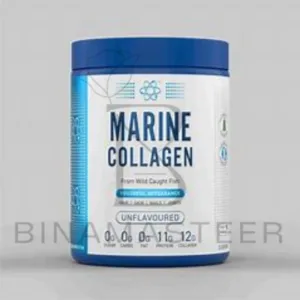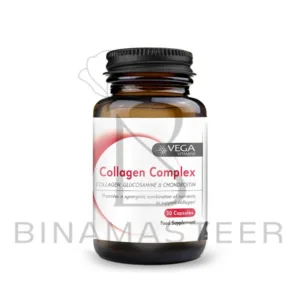news
Collagen Supplements: The Role in Joint & Bone Health
When we think of collagen, we often associate it with youthful skin and wrinkle reduction. However, its most profound and arguably most important role in the body is as the primary structural component of our joints and bones. As we age, the natural decline in collagen production can lead to a host of issues, including joint pain, stiffness, and increased risk of fractures. This has made collagen supplementation a popular strategy for those seeking to support their musculoskeletal system. This comprehensive guide will explore the vital role of collagen in joint and bone health, delve into the science behind supplementation, and provide a clear roadmap for using collagen to maintain a mobile, active, and pain-free life.

The Structural Framework: Collagen in Joints and Bones
- In Joints: Collagen is a key component of cartilage, the flexible, rubbery tissue that cushions the ends of our bones, allowing them to glide smoothly against each other. It also makes up ligaments and tendons, which connect bones to other bones and muscles to bones, respectively. Without adequate collagen, cartilage can become worn down, leading to inflammation, pain, and conditions like osteoarthritis.
- In Bones: Our bones are not just hard, static structures. They are a living tissue with a flexible framework made primarily of collagen. This collagen framework provides the tensile strength and elasticity that allows bones to withstand stress and makes them less brittle. The mineral calcium is deposited onto this framework to give bones their hardness.
The Decline with Age: Why We Need Support
As we age, our bodies produce less collagen, and the existing collagen can become fragmented and less effective. This decline has a direct impact on our musculoskeletal system.
- Cartilage Degeneration: Reduced collagen in cartilage can lead to its thinning and breakdown, causing bones to rub against each other. This is the hallmark of osteoarthritis.
- Reduced Bone Density: As the collagen framework in our bones weakens, the bones lose their strength and become more susceptible to fractures. This can contribute to conditions like osteopenia and osteoporosis.
The Science of Supplementation for Joints and Bones
When you take a collagen supplement, it’s broken down into peptides and amino acids. These fragments don’t just directly rebuild cartilage and bone; they act as signals to the cells responsible for producing collagen.
- Stimulating Collagen Synthesis: Studies show that collagen peptides signal to chondrocytes (the cells that produce cartilage) and osteoblasts (the cells that produce bone) to increase their production of collagen and other components of the connective tissue.
- Reducing Joint Pain and Inflammation: Multiple clinical trials have demonstrated that daily supplementation with collagen can significantly reduce joint pain and stiffness in individuals with osteoarthritis. The proposed mechanism is that it helps to repair the cartilage and reduce inflammation.

Choosing the Right Collagen Supplement for Joints and Bones
- Type II Collagen is Key: For joint health, Type II collagen is the most important type, as it is the primary component of cartilage. Chicken collagen is an excellent source of Type II.
- Type I Collagen for Bones: For overall bone strength, a supplement rich in Type I collagen (like bovine or marine collagen) is beneficial, as it supports the bone’s collagen framework.
- Hydrolyzed is Essential: Always choose a hydrolyzed collagen supplement, which has been broken down into small peptides for maximum absorption.
- Consider Added Nutrients: Look for supplements that also contain joint-supporting nutrients like Vitamin C (essential for collagen synthesis), Glucosamine, and Chondroitin, which are also building blocks of cartilage.
A Holistic Approach for Active Living
Supplements work best as part of a comprehensive strategy for joint and bone health.
- Weight Management: Carrying excess weight puts added stress on your joints.
- Regular Exercise: Low-impact exercises like swimming, cycling, and yoga can help strengthen the muscles around your joints and keep them flexible.
- Nutrient-Rich Diet: Ensure you are getting enough Calcium and Vitamin D from your diet and sun exposure. These minerals are crucial partners for collagen in maintaining bone health.
- Listen to Your Body: Pay attention to pain signals. Pushing through pain can cause more damage.

Conclusion: Supporting Your Body’s Framework
Collagen is the unsung hero of our joints and bones. By providing our bodies with the raw materials and signals they need to produce this essential protein, we can proactively support our musculoskeletal system and help prevent the stiffness and pain that so often comes with age. Whether you’re an athlete, an active individual, or simply want to ensure a mobile and independent future, collagen supplementation is a powerful tool to invest in the longevity and strength of your body’s most fundamental framework.

